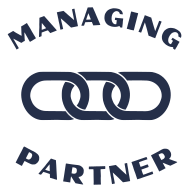How Do You Maintain Client Confidentiality?
In the intricate dance of maintaining client confidentiality, we've gathered wisdom from the front lines, including Founders and General Counsels. From implementing robust data security protocols to refining security measures after exposure, discover the top four strategies these legal and consulting professionals employ to protect sensitive information.
- Implement Robust Data Security Protocols
- Adhere to Professional Conduct Codes
- Enforce Strict Data-Security Measures
- Refine Security Protocols After Exposure
Implement Robust Data Security Protocols
One strategy we employ in challenging situations is implementing robust data security protocols and utilizing encrypted communication channels to safeguard sensitive information in our legal process outsourcing company.
In a real-life scenario, we encountered a situation where we were handling a high-profile merger acquisition for a client. Given the sensitive nature of the deal, maintaining confidentiality was crucial.
To ensure the utmost security, we restricted access to project-related documents to only essential team members, implemented multi-factor authentication measures, and conducted regular security audits. Additionally, all team members underwent comprehensive training on data protection best practices.
By prioritizing client confidentiality and implementing stringent security measures, we successfully navigated the challenging situation while upholding the trust and confidence of our clients.

Adhere to Professional Conduct Codes
In challenging situations, RWCO prioritizes confidentiality by adhering strictly to professional codes of conduct and legal regulations. We establish clear communication channels with our clients to understand their concerns and expectations regarding confidentiality. Utilizing secure technology and encryption methods ensures that sensitive information remains protected. Furthermore, professionals exercise discretion and limit access to confidential data only to those directly involved in handling the matter.

Enforce Strict Data-Security Measures
As the CEO of Startup House, I understand the importance of maintaining client confidentiality in challenging situations. One way we ensure this is by implementing strict data-security measures, such as encryption and access controls, to protect sensitive information. Additionally, we have clear policies in place for our team members on how to handle confidential information and regularly train them on best practices. Trust and transparency are key in our relationships with clients, so we always prioritize their privacy and security above all else. Remember, confidentiality is not just a policy; it's a commitment to our clients' trust and success.

Refine Security Protocols After Exposure
In my capacity as a legal professional, client confidentiality has always been paramount. One particularly challenging situation occurred when there was inadvertent exposure of a client's information within the firm. The computer system had been upgraded, inadvertently compromising the confidentiality settings. We had to act swiftly, refining existing security protocols and conducting an immediate, comprehensive training for our team on maintaining data security and confidentiality. We were not only able to correct the issue but also strengthened our security moving forward.
In another instance, as we worked on a high-profile merger, the demand for information from the media was intense. Maintaining client confidentiality during such a high-stakes situation required a diligent approach. We established strict ground rules about communication and information handling, with a dedicated team handling media interactions. These experiences reiterate that upholding client confidentiality often requires swift, strategic actions and a culture of discretion within the organization.


